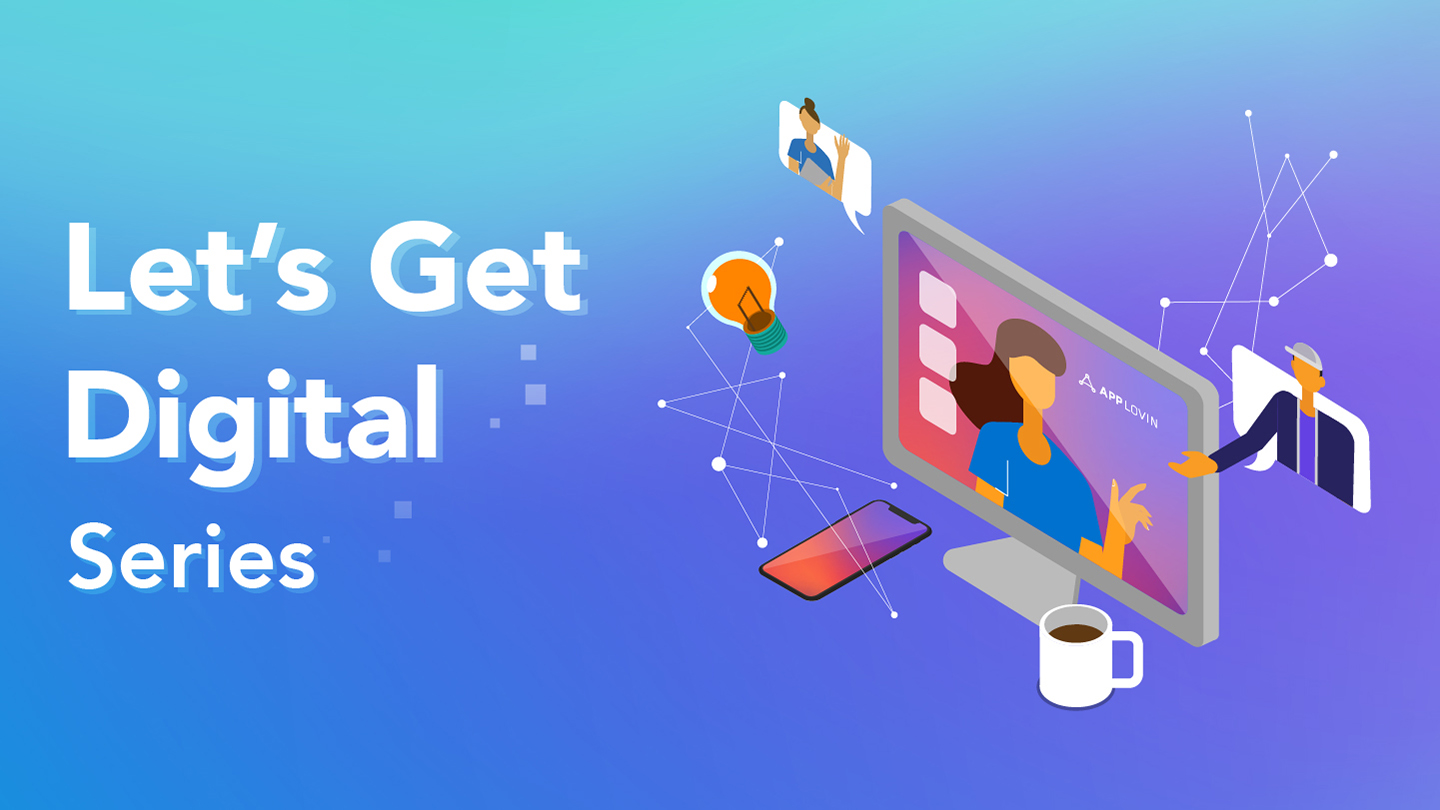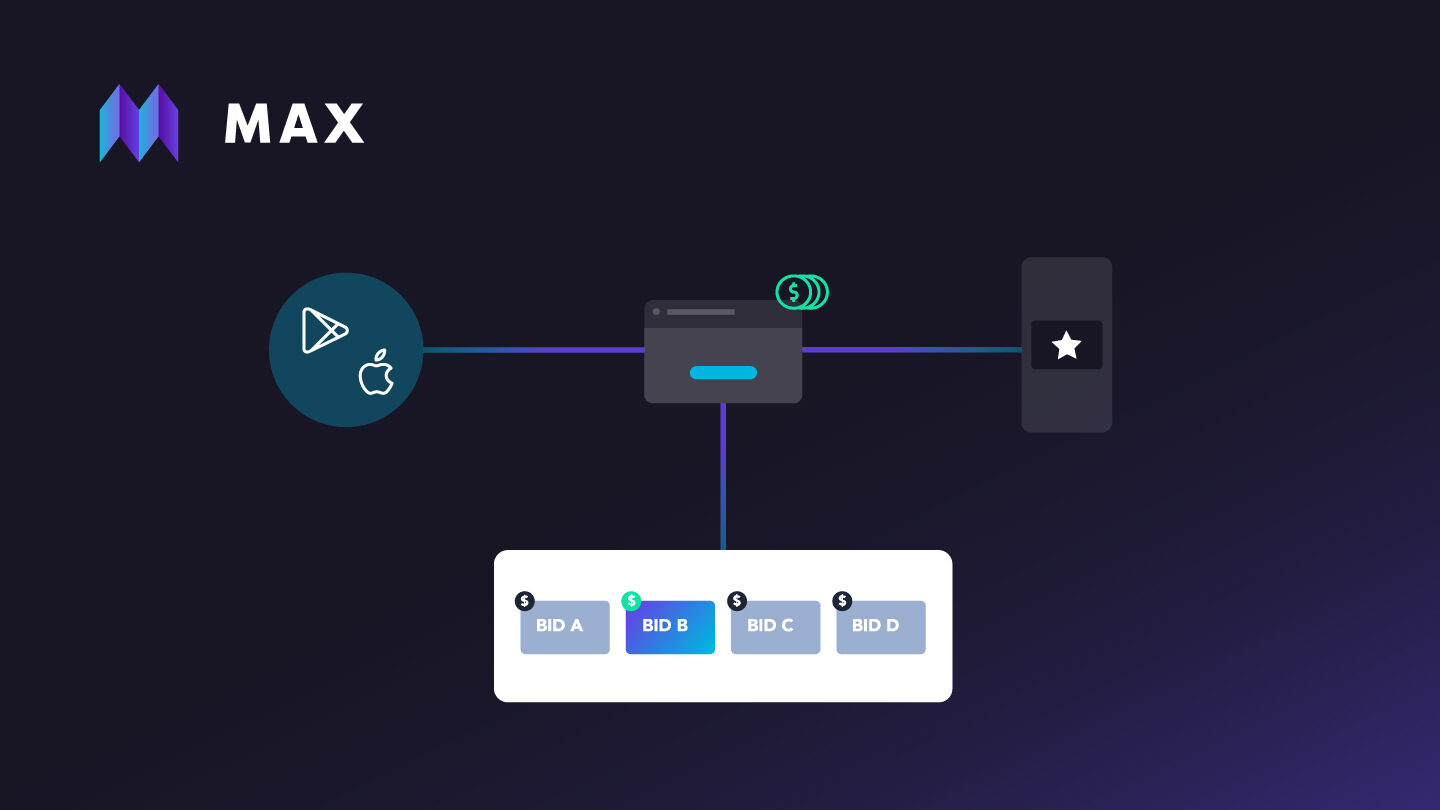
Let’s Get Digital: Creating Meaningful Events in a Digital World
We’re introducing a new series called Let’s Get Digital focusing on how to participate in, plan, and execute successful digital events. Keep an eye out for new posts monthly.
A few short weeks ago, AppLovin’s events team was in full swing planning our robust involvement this year in conferences and meetups across the globe.
And then things started to rapidly start to change. Live events and conferences all over the world were being canceled and we had to rethink how to get our content out to our audiences.
Our marketing team chose to see this challenge as an opportunity to grow and stretch — to try out new things in channels to connect with our global audience. We came together to strategize how to leverage digital tools to participate in or create connections — like how forums we use to connect with our customers could be utilized as a space for our customers to connect with one another. Through collaboration, industry insights, and some experimentation, this post will explore the best practices we’ve gathered for marketers to pivot and address the major shift in creating successful in-person events to digital events.
Redesigning Your Events Calendar
First, address your existing physical events calendar and make the appropriate cancellations or postponements with an ambiguous timeline. Canceling existing conference sponsorships and venue contracts can be a bit tricky depending on contracts. Pause signing any that were in the process of being created and be clear as to why you are not committing, and review all that you’ve already signed with vendors or partners. While reviewing, take notes of any special clauses and timelines that force you into a set date.
Most, if not all vendors in the events industry, heavily rely on in-person events to keep their businesses running including staffing and expenses. Recognizing these factors during a difficult or uncharted time will help both parties navigate to come to a fair and early agreement. And look for work-around ways that demonstrate you’re coming back for this vendor’s business, like ensuring you’ll book your next live event with this vendor when it’s possible. While this may feel all-consuming right now, changes are usually temporary, and maintaining your vendor and partnership relationships are a long-term investment.
The Digital Event Shift
With all major in-person events now postponed or canceled, we’re all feeling a lack of inspiration from great content and new information that would have been shared at these in-person events. While there are some changes — what better way to safely reach all of these attendees than by shifting and finding a way to reach your audience digitally? People are working from home and spending more time than ever online or on their phones. This proves a great way to engage the audience as they have more time — and certainly more of an appetite for digital content.
Digital Events Strategy
Developing the right digital event strategy for your company comes with understanding what the goal of these should be, and how your team can collaborate to bring a vision to life. Begin with determining your audience. Because it’s often easier and less expensive to reach your audience you’ll have the opportunity to be as specific as you want — you can really hyper-target your audience or start broad depending on what you are distributing.
Next, determine what content you want to share, which will help inform what medium your content would perform best to drive audience engagement. In-depth content might be better suited to a webinar with a dedicated presentation deck, whereas Q&A with a developer expert might be better suited to Facebook or LinkedIn Live for a more casual feel. Podcasts are also a great form of digital content that work well with series prone to more conversation-heavy content. Certain video applications like Zoom even offer a feature for “live” chats that allow for up to 1,000 participants to keep the conversation going. Work with your internal marketing and business development teams to build out an editorial calendar that maps back to the digital events you’re planning.
Another good idea to work with your partners. If you are thinking about this, it’s likely others in your industry are as well. See if you can join a partner companies’ existing content and medium. They may have been using digital mediums for a while or have an existing series that is worth joining. Partners usually have some helpful insights into which mediums or platforms have performed well or thoughts on a medium they would be interested in trying with you. Remember that most successful events come with collaboration and personal insights into what works and doesn’t work.
Stand Out
With all companies looking to pivot and take advantage of this shift to more digital events, standing out is key. Find out what makes your company different — use your resources, and use what you know works best for you. Use your design team to help produce visuals to add to webinars. Or, if you have sound capabilities you can leverage to create a theme song to add to a series.
Let attendees know that if they register and attend your digital event they’ll get a piece of physical swag mailed to them. Some examples include a digital detox kit that might include electronic cleansing cloths and items to induce relaxation — or something useful for a person who is now working from home like blue light glasses or a resilient house plant. Using and experimenting with some stand out factors can also help determine (return on investment) ROI to weigh how much time and resources are placed into your new digital events strategy.
When it comes to events, moving to a digital mindset doesn’t always feel natural — especially when you’re in an industry that has often leveraged a lot of in-person live conferences and events to drive business. When circumstances determine the need, it’s a good excuse to give it a try. Embrace these new opportunities and use this time — you just might find a new channel for your market and your business that could have lasting positive impacts.



